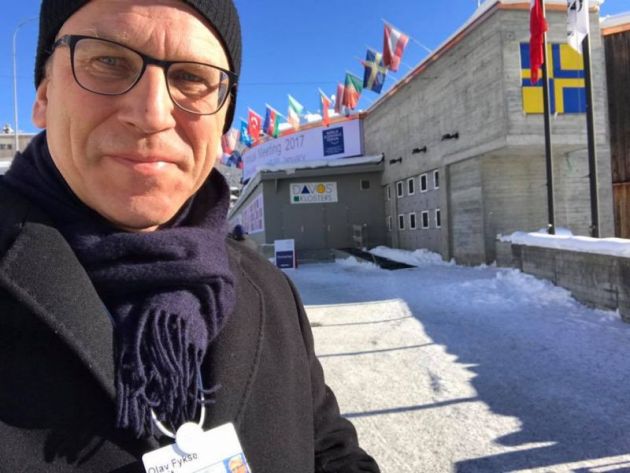Tackle worsening global inequality 'now,'says World Council of Churches Olav Fykse Tveit

If the worsening global inequality highlighted recently is to be tackled, world leadership must act "now," in tangible ways, says World Council of Churches general secretary, Rev. Olav Fykse Tveit.
The WCC leader was participating in the 2017 World Economic Forum in Davos, Switzerland during the week, which had the theme: "Responsive and Responsible Leadership."
As a faith leader, Tveit said in Davos on Jan. 20, he plans to carry the urgent message that, "If global leadership is to be responsive and responsible, it must put inequality at the top of its agenda, it must tackle inequality in tangible ways, and it must do so now."
Tveit made his speech hours before the inauguration of U.S. President Donald Trump, specifically mentioning the United States, while not mentioning its new leader's name.
"The problem of inequality is related to deep structures of difference and division related to class, race, gender and more," said the WCC leader whose churches represent more than 550 million Christians in different parts of the world.
"What we do know for sure is that it is not true that all children are born with the same possibilities, and particularly not in a country like the USA, where this has been a slogan so often."
The general secretary noted, "On the day of the inauguration of the 45th President of the USA, elected by the strong support of those who are afraid of losing their white superiority and privilege, there are many who wonder what the new administration of the most powerful nation will do in this respect."
Trump was formally elected the 45th U.S. president when the Electoral College met Jan. 16. But he lost the popular vote to his Democratic Party challenger, Hillary Clinton, by more than 2.9 million votes.
ELECTORAL COLLEGE
The presidency is decided by 538 electors, who are allotted to states proportionate to each state's population. Trump received 304 electoral votes, and Clinton received 227, with the remaining seven voters choosing other candidates.
Tveit said, "This is the time to give a clear message from all sectors of U.S. society and in the whole world that neither the USA nor the world at large need more separation, more gaps, more people left behind, or excluded from the economic development. It will increase the risks for all."
In reaction to a newly-released report from Oxfam, Tveit noted it referencing a "widening socio-economic chasm between the rich and the poor" that is a continuing indictment of the global economic system.
Oxfam's analysis, titled "An economy for the 99 percent," found that eight billionaires account for more than half the world's wealth.
"Clearly an economic system that rewards those who practice exploitation, corruption and tax evasion, that generates ever-increasing returns for billionaires and millionaires – even as it fails to feed, shelter and clothe nearly a billion people – is dysfunctional" said Tveit. "More than this, it is immoral. Inequality fuels poverty, and poverty kills."
"Now, more than ever, churches and people of faith must heed the call of the pilgrimage of justice and peace to call for an economy of life that embraces and cares for all human beings, especially those who have been pushed aside: the impoverished, many women, children, and migrants" he added.
"In the Holy scriptures, God expresses a preferential option for the poor, over and over again," said Tveit.
In concrete terms, this means churches should advocate effectively and unceasingly for financial regulation, just trade policies, decent livelihoods, fair taxation, social protection for the vulnerable and alternative measures of socio-economic progress.
The WEF noted in a statement, "Our Annual Meeting is often described as a talking shop, but it is also a working meeting for dozens of different communities from all regions of the world, all ages and all sections of society.
"When Davos ends, our work continues on 50 year-round Forum projects aimed at supporting the United Nations Sustainable Development Goals."
The Forum noted that 100 leading businesses signed the Compact for Responsive and Responsible Leadership. The Compact was developed with the Forum's International Business Council which it said will now develop a framework which will allow the measurement of a long-term approach.
The compact says, "Society is best served by corporations that have aligned their goals to serve the long-term goals of society. The Sustainable Development Goals offer a useful roadmap for such alignment.
"Short-term financial gains should not distract from the corporate and societal goals of long-term economic prosperity and social welfare."